
Publisher:
Bonnie King
CONTACT:
Newsroom@Salem-news.com
Advertising:
Adsales@Salem-news.com

~Truth~
~Justice~
~Peace~
TJP
Nov-01-2013 14:03

 TweetFollow @OregonNews
TweetFollow @OregonNews
Iran to Follow?
White House Expected to Ease Sanctions Targeting Syria
Dr. Franklin Lamb Salem-News.com
Secretary of State John Kerry is reportedly slated to continue meetings with Saudi-Israeli officials in an attempt to tamp down their growing angst.
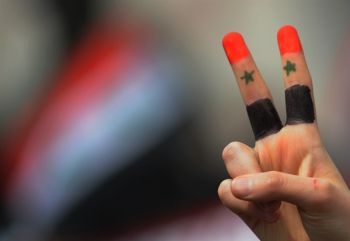 |
(DAMASCUS) - Additional easing of Syrian sanctions is expected by mid-November according to staff at the US Treasury Department’s Office of Financial Asset Control (OFAC).
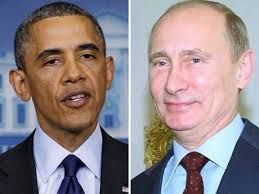 |
Pressure on Obama from Putin is part of the ‘price tag’ for Russia’s role in bailing out the American president, whose chemical weapons ‘redline’ became something of an albatross. But another reason for the relaxation is that the White House believes it needs to communicate to Damascus that prospects for better relations, and possibly even some cooperation, are not completely dead, despite the 32-month crisis still raging in the Syrian Arab Republic.
This second easing of sanctions will show more balance and neutrality than those of last June, which were perceived as supporting Saudi and Gulf aid to the rebels while weakening the Assad government just as the Syrian Army had begun gaining back ground from the rebels. At that time, licenses for exports of certain goods related to reconstruction of infrastructure were allowed in areas held by the rebels. Specifically, OFAC indicated that license applications would be accepted for commodities, technology and software related to water supply and sanitation, agricultural production and food processing, power generation, oil and gas production, construction and engineering, transportation, and educational infrastructure. Most benefited would be rebel-controlled areas.
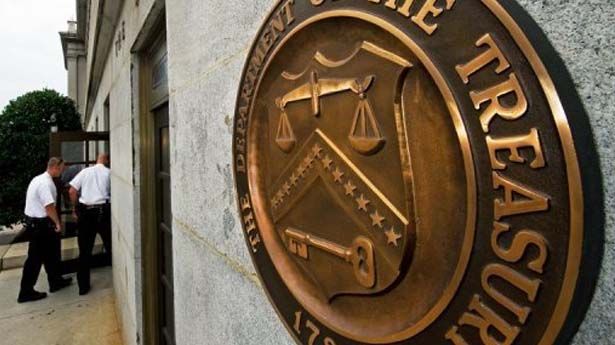 AFP photo courtesy: rawstory |
No doubt it is with a deep patriotic spirit of wanting to help out their fellow Americans, that the US Treasury Departments heavily pro-Zionist OFAC asks US citizens to “consult our Frequently Asked Questions (FAQ) to find answers to your most commonly-asked questions about how Syrian and Iranian sanctions may affect your own families and your business.”
That is unlikely to be easy given the obfuscatory legalize of the sanctions texts.
There are currently three types of sanctions that the U.S. government has imposed against Syria. The most comprehensive sanction, called the Syria Accountability Act (SAA) of 2004, prohibits the export of most goods containing more than 10% U.S.-manufactured component parts to Syria. Another sanction, resulting from the USA Patriot Act, was levied specifically against the Commercial Bank of Syria in 2006. The third type of sanction contains many Executive Orders from the President that specifically deny certain Syrian citizens and entities access to the U.S. financial system due to their participation in proliferation of weapons of mass destruction, association with Al Qaida, the Taliban or Osama bin Laden; or destabilizing activities in Iraq and Lebanon.
Syria Accountability and Lebanese Sovereignty Restoration Act
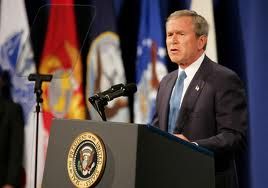 State Dept. photo |
In May 2004, the President signed E.O. 13338 implementing the Syria Accountability and Lebanese Sovereignty Restoration Act (SAA) which imposes a series of sanctions against Syria for its support for terrorism, involvement in Lebanon, weapons of mass destruction programs, and the destabilizing role it is playing in Iraq.
In addition, the Treasury Department’s Statement of Policy indicated that OFAC would consider on a case-by-case basis applications to permit certain services in the agricultural sector, as well as in the Syrian telecommunication industry, enabling private citizens better access to the Internet, while certain petroleum transactions benefiting rebel forces were also authorized. OFAC also revised Syria General License 11 and replaced it with General License 11A authorizing NGOs to engage in activities to preserve the cultural heritage of the country, including museums, historic buildings and archaeological sites.
In addition, the White House is telling Congressional leaders, loudly enough for all to hear, that the president’s recent waiving of restrictions on supplying arms to Syrian rebels was much more limited than depicted in mainstream media reports. In fact, the waiver—on certain portions of the Arms Export Control Act—authorizes only specific transfers to “vetted” members of the opposition and to NGOs in Syria. The defense items to be provided are described as those “necessary for the conduct of …operations inside or related to Syria, or to prevent the preparation, use, or proliferation of Syria’s chemical weapons.” Who was to be responsible for “vetting” the opposition members was not specified, nor were the particular articles detailed. But significantly the White House claims this is not a general waiver, but rather one with regard to a single specific contemplated transaction. Defense companies do not now have a blanket license to ship their wares to the Syrian opposition. This is because Section 40(g) of the Arms Export Control Act, 22 U.S.C. § 2780 (g), specifically gives the President authority to waive the provisions of the Act with respect to a specific transaction should he find that the waiver is “essential to the national security interests of the United States” and should he make the requisite report on the waiver to Congress. His determination on that finding directs the Secretary of State to make the required report to Congress.
The main opposition to White House plans to lessen the civilian targeting sanctions comes, as usual, from the US Congressional Zionist lobby. Israel’s supporters in Congress seek to prevent any lessening of US sanctions—against Iran first, and Syria second. Two days of talks are about to begin in Vienna between experts from the P5+1 (the United States, Russia, China, Britain, France, and Germany) and their Iranian counterparts, who will discuss technical issues relating to Tehran’s nuclear program and international sanctions. The meeting will help lay the groundwork for the next round of diplomatic negotiations, scheduled to take place in Geneva on November 7-8, and it is anticipated that the White House will accede to EU and Russian proposals to send a reciprocal good faith response to Tehran by lifting some of the sanctions targeting Iranian civilians. Although the P5+1 and Tehran have agreed to keep the contents of their negotiations secret, the general aim of the talks has been for Iran to reduce its capacity to enrich uranium and certain other nuclear activities in return for relief from the sanctions regime, which is strangling the nation’s economy. The main hurdles include verification of any concessions Iran makes and the sequencing of any reduction in sanctions.
Signs of progress were visible earlier this week in comments made after separate talks between Iran and the International Atomic Energy Agency. In a rare joint statement, both sides called the talks “very productive”—a significant departure from eleven previous meetings in recent years, all of which failed to achieve progress in resolving what the IAEA has called the “possible military dimensions” of Iran’s nuclear program. The new joint statement also indicates that a document discussed in past meetings has been set aside and a new approach taken.
Eager as it is for negotiations to succeed, the Obama administration has also echoed the Zionist lobby’s contention that “no deal is better than a bad deal.” Yet if the talks fail, international support for sanctions will likely begin to fall apart, reducing U.S. leverage even further.
The world is watching, particularly U.S. allies in Europe and Asia, as well as regional “friends” like Jordan, the United Arab Emirates, and Saudi Arabia. Though reportedly interested in lifting some of the sanctions on Syria and Iran, the White House is facing stiff opposition from Tel Aviv and Riyadh, with both governments criticizing the US for its lack of resolve in Syria and its presumed conciliatory attitude toward Iran.
Secretary of State John Kerry is reportedly slated to continue meetings with Saudi-Israeli officials in an attempt to tamp down their growing angst.
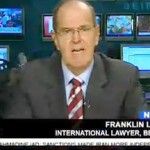 Dr. Franklin Lamb is Director of the Sabra Shatila Foundation. Contact him at: fplamb@sabrashatila.org. He is working with the Palestine Civil Rights Campaign in Lebanon on drafting legislation which, after 62 years, would, if adopted by Lebanon’s Cabinet and Parliament grant the right to work and to own a home to Lebanon’s Palestinian Refugees. One part of the PCRC legislative project is its online Petition which can be viewed and signed at: petitiononline.com/ssfpcrc/petition.html. Lamb is reachable at fplamb@palestinecivilrightscampaign.org.
Franklin Lamb’s book on the Sabra-Shatila Massacre, International Legal Responsibility for the Sabra-Shatila Massacre, now out of print, was published in 1983, following Janet’s death and was dedicated to Janet Lee Stevens. He was a witness before the Israeli Kahan Commission Inquiry, held at Hebrew University in Jerusalem in January 1983.
Dr. Franklin Lamb is Director of the Sabra Shatila Foundation. Contact him at: fplamb@sabrashatila.org. He is working with the Palestine Civil Rights Campaign in Lebanon on drafting legislation which, after 62 years, would, if adopted by Lebanon’s Cabinet and Parliament grant the right to work and to own a home to Lebanon’s Palestinian Refugees. One part of the PCRC legislative project is its online Petition which can be viewed and signed at: petitiononline.com/ssfpcrc/petition.html. Lamb is reachable at fplamb@palestinecivilrightscampaign.org.
Franklin Lamb’s book on the Sabra-Shatila Massacre, International Legal Responsibility for the Sabra-Shatila Massacre, now out of print, was published in 1983, following Janet’s death and was dedicated to Janet Lee Stevens. He was a witness before the Israeli Kahan Commission Inquiry, held at Hebrew University in Jerusalem in January 1983.
 |
 |
 |
Articles for October 31, 2013 | Articles for November 1, 2013 | Articles for November 2, 2013

Quick Links
DINING
Willamette UniversityGoudy Commons Cafe
Dine on the Queen
Willamette Queen Sternwheeler
MUST SEE SALEM
Oregon Capitol ToursCapitol History Gateway
Willamette River Ride
Willamette Queen Sternwheeler
Historic Home Tours:
Deepwood Museum
The Bush House
Gaiety Hollow Garden
AUCTIONS - APPRAISALS
Auction Masters & AppraisalsCONSTRUCTION SERVICES
Roofing and ContractingSheridan, Ore.
ONLINE SHOPPING
Special Occasion DressesAdvertise with Salem-News
Contact:AdSales@Salem-News.com

Salem-News.com:
googlec507860f6901db00.html

Terms of Service | Privacy Policy
All comments and messages are approved by people and self promotional links or unacceptable comments are denied.
[Return to Top]
©2025 Salem-News.com. All opinions expressed in this article are those of the author and do not necessarily reflect those of Salem-News.com.